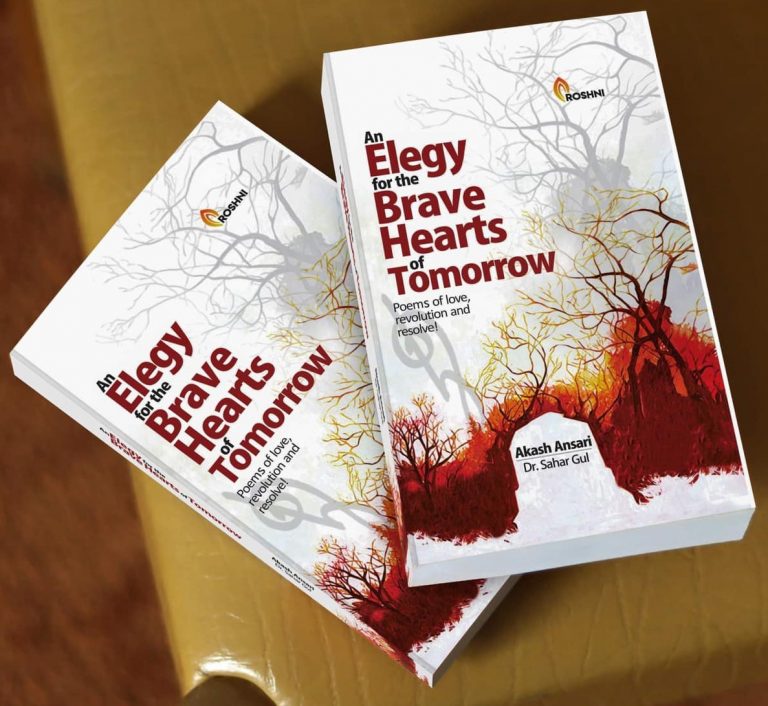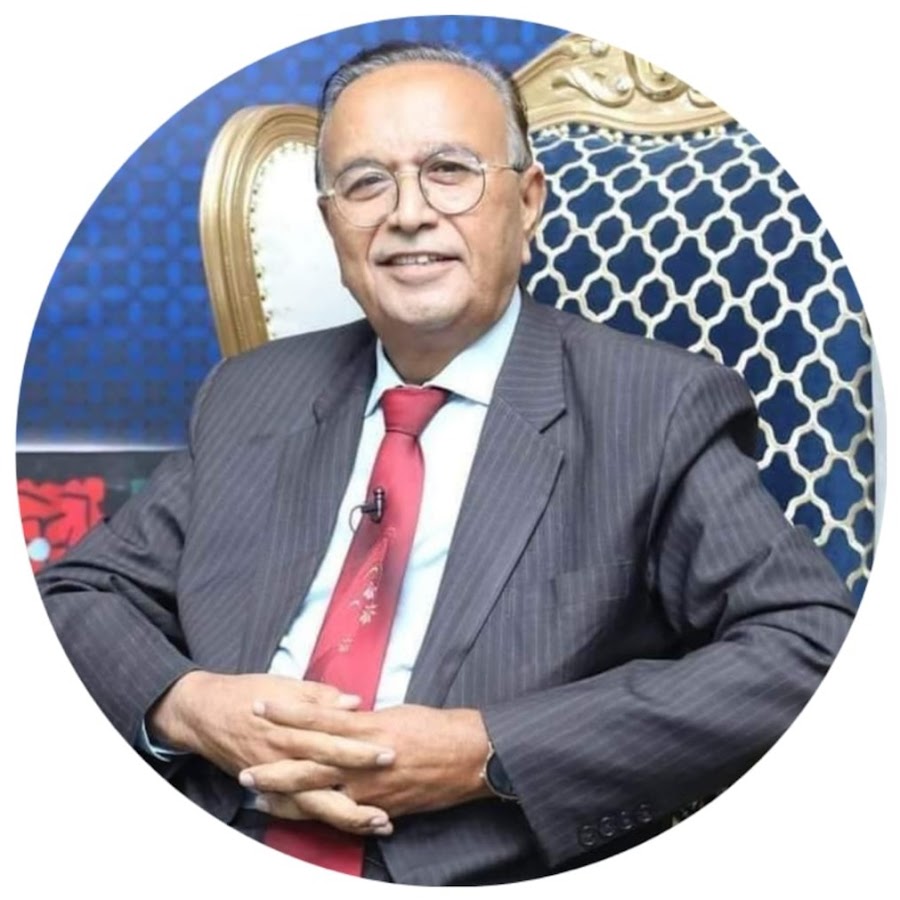
‘An Elegy for the brave hearts of tomorrow: Poems of Love, Revolution and Resolve’, is a compilation of selected poetry of Dr. Akash, translated from Sindhi language into English by Dr. Sahar Gul
Sindh Courier
Akash Ansari is one of our leading poets in the South Asian subcontinent whose verse is both exquisite and transcendental. He has a wide range and a truly rare ability to pacify and agitate the human soul at the same time. While he has explored the anxiety of a human being’s complex relationship to nature and the inner self, he has also celebrated resistance to social conformity and political oppression.
The book, compilation of 34 selected poems with English translation and the original Sindhi version, was published by Roshni Publication Hyderabad Sindh in the year 2022. Dr. Sahar Gul, herself an eminent scholar, has translated the poetry of Dr. Akash Ansari.
Introduction of Dr. Akash Ansari
Dr. Akash Ansari opened his eyes in a small village of Badin Sindh who later emerged as the great writer and social worker.
Akash’s life is a story of long lasting struggle, writer, revolutionist, traveler, lover and so much more. He spent his early days of life in Badin and inherited the poetic and intellectual side from his parents. His father Allah Dino Badinavi was a poet and his mother Jannat Khatoon was a spiritual follower of Mystic Poet Shah Abdul Latif Bhitai.

During his schooling in Saeedpur village he wrote the first poetry of his life and later he started writing in a Sindhi daily’s children page. Akash was a political activist from the time of his schooling, and was the follower of the ideology of nationalist leader G.M Syed. Akash participated in Movement for Restoration of Democracy (MRD) and was arrested several times. Akash Ansari was also a member of literary organization Sindhi Adabi Sangat. After completing his higher education from Islamia College Badin, he got admission in Liaquat Medical College Jamshoro. He later became the part of Awami Tehreek led by Rasool Bux Palijo.
Akash has traveled more than 50 countries of the world. His family members often found him as a leopard who never stays at one place.
He was against the martial law and condemned the rule of Gen. Zia. In his famous poem “O’ Qatil” from his book ‘Kean Rahan Jalawatan’ is a complete description of his thinking for the military regime.
Madam Mahtab Akbar Rashdi, an author, columnist, and former member of Sindh assembly, who had retired as the senior officer of Sindh government, writes in an introductory note, “Dr. Akash Ansari is the prominent name in the literary and cultural circles and, known for his love and commitment to his motherland and people of Sindh. He has actively participated in politics, challenged the dictatorial rule of Gen. Zia, showed bravery through MRD, and raised questions against class-based society. He translated all his thoughts through his poetry.”
Commenting on poetry of Dr. Akash, she says, “His poetry simply is expression of intense feelings and ideas which carry a distinctive style and rhythm in words chosen by him; his poetry has the beauty and intensity of emotions. The words in his poetry are strung together to form sounds, images and ideas that might be too complex or abstract to describe directly.”
A cognitive journey into the poetic world of Dr. Akash
Dr. Sahar Gul, in her note as translator, writes, “The immediate glance at the title of the book would alert the readers, making them both pensive and skeptic simultaneously – ‘An Elegy for the Brave Hearts of Tomorrow: Poems of Love, Revolution and Resolve’. Why would a poet use the term ‘Elegy’ in the title of his book, which carries nationalistic and radical poetry?”
“I have attempted to explore how the poetry of brave hearts could be an elegy,” Dr. Sahar Gul says and elaborates:
“An elegy, in meaning, is a cremation song, an expression offered in homage to the dead at the funeral/memorial service or by standing alongside a grave or mausoleum. But then in the process of pondering I had had a sudden moment of realization that the protagonists of Dr. Akash’s poems are the patriotic political workers who love their motherland Sindh and fantasize to either attain its freedom or they be its martyrs.”
“I would say that Dr. Akash, in his poems, weaves a perfect story, which is picturesque and scenic, replete with characters who are the heroes, who have set out on journey of meaningful pursuits, of the grand sacred ideas – leaving their home, hearth and heroines behind. His hero’s heart gets sweet alerts when cuckoo chirps at the dawn; he takes joy in seeing the blooming flowers drenched in dewdrops; all this gives him yearning for the beloved who is far and away from him.”
“Won’t it be termed an elegy then? He has every reason to title his book, his or his characters’ physical and cognitive journey so!” Dr. Sahar Gul concludes.
A Poet in Perennial Exile
Jami Chandio, a sociologist and an old associate of Dr. Akash, in his prologue, describes him (Dr. Akash) as ‘a poet in perennial exile’. “Every creative, non-conformist and revolutionary human doesn’t stay at consolation of fulfillment; fulfillment of end of journey, love, passion and cause in life. That’s why Akash feels always incomplete in his life, pursuits, ambitions, goals and journey, and that makes him say:
Incomplete, all life, we remained…
Incomplete, all life, we remained…
The Exiled
Avenge I will, avenge I will, O time, I undertake.
How can I remain displaced, uprooted, exiled!
[A poem from the book]
Lost its path as if, a bird flying suspended in the skies,
Without nest, has neither abode, nor garden to reside,
Alone, alien, like the bird, I am also, in my life,
I am displaced, uprooted, exiled.
Swigging poison each day, I vacillate amid life and death, death and life,
As if in the deep whirls of Kolachi’s sea, I rise and sink, sink and rise,
Like the chapel lamp, I light and dowse, dowse and light,
I am the body, as if, cold, wilted, and crucified,
I am displaced, uprooted, exiled.
Neither is this my dwelling, nor my own home,
It is not my realm as if, nor my own abode,
As if it is neither my sky nor my land,
I am, as if, corpse of the history’s murky shroud,
I am displaced, uprooted, exiled.
I swear by the giggles, that were snatched,
O merciless, I swear by the tears my eyes bled,
I swear by each sip of the sweet milk of mother’s breast,
Avenge I will, avenge I will, O time, I undertake.
How can I remain displaced, uprooted, exiled!
How can I remain displaced, uprooted, exiled.
__________________